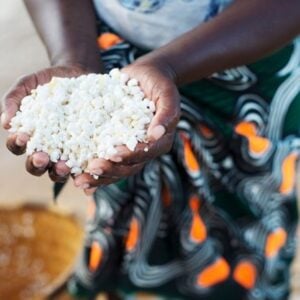The 2025 edition of the World Food Forum (WFF) began at the FAO headquarters in Rome, coinciding with the Food and Agriculture Organization’s 80th anniversary. The week-long event brings together over 25,000 participants, including heads of state, ministers, youth leaders, Indigenous Peoples, civil society, private sector representatives, and international organizations. Under the theme “Hand in Hand for Better Foods and a Better Future,” the Forum focuses on dialogue, innovation, and partnerships to transform global agrifood systems.
FAO Director-General QU Dongyu highlighted the organization’s eight-decade-long commitment to fighting hunger, ensuring food security, and promoting sustainable agriculture. He emphasized that while global hunger has decreased since FAO’s early years, 2.3 billion people still experience food insecurity, and 2.6 billion cannot afford a healthy diet. Qu stressed that addressing these challenges requires collective action, comparing the transformation of agrifood systems to assembling a complex mosaic of many pieces, colors, and hands.
King Letsie III of Lesotho, FAO Special Ambassador for Nutrition, noted that transforming agrifood systems demands political will and sustained investment, which would yield long-term benefits such as reduced import costs, youth employment, and resilience to climate shocks. Brazilian President Luiz Inácio Lula da Silva urged governments to adopt policies that prioritize the poor and stressed multilateral cooperation to eradicate hunger. Muhammad Yunus of Bangladesh framed hunger as a moral failure, calling for social business models and investments in agrotechnology to empower farmers, women, and youth.
Interactive roundtables provided a platform for dialogue between global leaders, policymakers, and youth innovators. Princess Basma bint Ali of Jordan emphasized youth engagement in decision-making and addressing urban food deserts, while Prime Ministers Abdoulkader Kamil Mohamed of Djibouti and Russell Mmiso Dlamini of Eswatini highlighted the importance of agricultural innovation, investment, and governance to build resilient and inclusive agrifood systems. Cultural performances and thematic videos reinforced the Forum’s focus on creativity and collaboration as catalysts for transformation.
The World Food Forum operates through three interconnected pillars: the Global Youth Forum, mobilizing young leaders for sustainable solutions; the Science and Innovation Forum, promoting evidence-based research and technologies; and the Hand-in-Hand Initiative Investment Forum, connecting countries, investors, and development partners to foster impactful investments. By integrating youth, science, and investment, the WFF aims to drive real-world transformation in agrifood systems worldwide.






